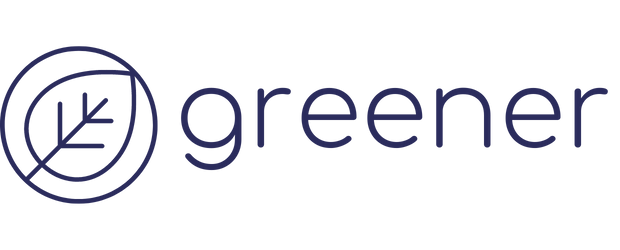
Getting beyond the greenwash
Why accountability, disclosure, and transparency are key to genuine sustainability
As the world continues to grapple with the effects of climate change, companies across all industries are taking steps to address their carbon footprint and promote sustainability. However, as the global conversation around sustainability continues to grow, so too does the prevalence of greenwashing - a phenomenon in which companies misrepresent their environmental impact or sustainability efforts. It is a pervasive issue that undermines genuine efforts and erodes consumer and public trust. Greenwashing increases the importance of accountability, disclosure and transparency, particularly when it comes to scope 3 emissions. These are emissions that occur upstream and downstream of a company's operations, including emissions from suppliers and customer use, and are notoriously difficult to address due to the need to gather accurate data from suppliers and their suppliers.
Accountability, disclosure and transparency are interconnected and interdependent; they are essential components of any effective sustainability strategy.
- Accountability refers to the responsibility that companies have to mitigate their environmental impact and ensure sustainable practices throughout their operations. It drives companies to take ownership of their impact and implement sustainable practices throughout their supply chain.
- Disclosure refers to the reporting of information related to sustainability, including data on greenhouse gas emissions, resource use, and waste management. It enables companies to measure and track their impact, identify areas for improvement, and communicate progress to stakeholders.
- Transparency refers to the openness and accessibility of this information to stakeholders, including customers, investors, and the public. It allows stakeholders to hold companies accountable for their actions and decisions, encouraging companies to act responsibly and improve their sustainability performance.
Accountability, disclosure and transparency are related to each other in that transparency and disclosure are often used as tools to promote accountability. By being transparent and disclosing information about their sustainability practices, companies can be held accountable by stakeholders, including consumers, investors, and regulators. Without transparency and disclosure, it is difficult for stakeholders to understand a company's environmental and social impacts, and therefore difficult to hold them accountable. Similarly, without accountability, transparency and disclosure can be seen as meaningless gestures rather than genuine efforts to improve sustainability practices. These three elements work together to create a system of sustainability that is based on trust, communication, and responsibility.
By using technology to track emissions, companies can gain a better understanding of their environmental impact and take action to reduce it.
When it comes to regulations and disclosure expectations around Scope 3 emissions, the food and drink industry is facing increasing pressure to become more accountable and transparent. Currently, there are limited regulations in place that require companies to report on Scope 3 emissions. However, this is likely to change in the near future as consumers, investors, and stakeholders demand more information about the environmental impact of the products they buy and the companies they support.
In response to this demand, regulatory bodies such as the European Union are beginning to introduce new disclosure requirements for companies. For example, the EU's Corporate Sustainability Reporting Directive (CSRD) which came into effect in January 2023, extends the current reporting obligations to cover a wider range of sustainability issues, including Scope 3 emissions. Similarly, the Task Force on Climate-related Financial Disclosures (TCFD) recommends that companies disclose information about their emissions across the entire value chain.
Addressing Scope 3 emissions presents significant challenges for companies, including the difficulty of gathering accurate data from suppliers and their suppliers. Tracing emissions back to raw material extraction adds to this complexity, making it hard to determine total carbon footprint. Companies also face potential costs and resource implications, such as changes to supply chain and procurement processes and investments in new technologies.
Despite these challenges, it's crucial for food and drink companies to prioritise transparency and disclosure for Scope 3 emissions to understand their carbon footprint and identify improvement areas. Collaboration, technology, and sustainability commitment can facilitate progress. By working together, companies and suppliers can develop a shared understanding of sustainability goals and identify areas where emissions can be reduced. This can lead to a more efficient supply chain and reduced carbon footprint overall.
Technology can also be used to track emissions throughout the supply chain. Digital tools such as blockchain and IoT sensors can provide real-time data on emissions, making it easier to identify areas where improvements can be made. By using technology to track emissions, companies can gain a better understanding of their environmental impact and take action to reduce it.
Incorporating sustainability into procurement decisions is similarly important. By choosing suppliers and products that align with sustainability goals, companies can ensure that they are reducing their carbon footprint at every stage of the supply chain. This can include sourcing materials from sustainable suppliers, reducing waste and packaging, and implementing energy-efficient practices.
Want to get started?
Join Greener to start building a greener supply chain
There are several examples of companies that have successfully implemented accountability and disclosure practices.
- Alter Eco is a sustainable food company that specialises in Fair Trade and organic chocolate, coffee, and quinoa products. They have implemented a comprehensive accountability and disclosure program, which includes regular reporting on its sustainability progress and a focus on sustainable sourcing and ethical supply chains.
- Numi Organic Tea is a sustainable tea company that specialises in organic, fair trade, and non-GMO teas. The company has implemented a comprehensive sustainability program, which includes a focus on sustainable sourcing and a commitment to transparency and accountability.
- Tony's Chocolonely is a Dutch chocolate company that is committed to making 100% slave-free chocolate. They have implemented a comprehensive accountability and disclosure program, which includes regular reporting on its sustainability progress and a focus on sustainable sourcing and ethical supply chains.
By following in the footsteps of these companies, those within the food and drink industry can work towards becoming more sustainable and accountable to their customers and the environment. Companies that embrace sustainability as a core part of their business strategy are better equipped to mitigate risks associated with climate change and meet consumer demands, they can position themselves as leaders in the industry and drive positive change towards a more sustainable future.
Addressing scope 3 emissions represents a significant challenge for companies seeking to reduce their carbon footprint, as they involve complex supply chains that reach all the way back to raw material extraction. Addressing them requires a multifaceted approach that involves collaboration, technology, and sustainable procurement practices that include accountability, disclosure and transparency.
However, this challenge also presents an opportunity for companies to move away from greenwashing, take meaningful action and show leadership in sustainability efforts.

